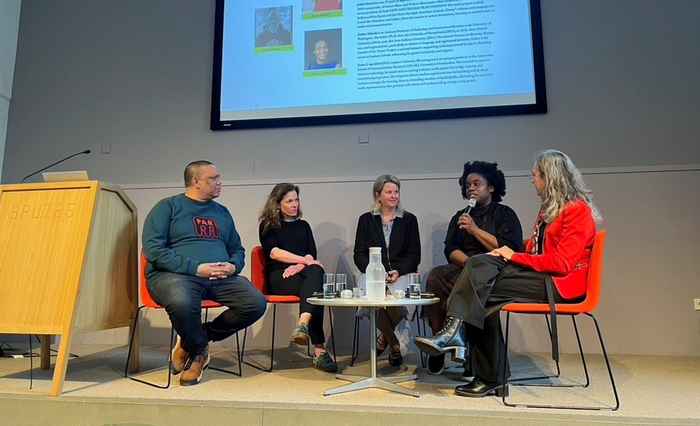Event summary: Representation in entertainment media and technology
Some communities (race, identity, gender, class) are underrepresented in media and technology. These portrayals perpetuate the dominant view, as they influence how community members see themselves, and how they are seen by the world.
Industry perspectives and findings
At our Amsterdam Centre for Responsible Consumption event on March 24, Irene van Driel, Andrea Weihrauch, Chei Billedo, and Martina Cossu discussed findings from their recent research project on representation in media and technology, funded by the FRIS (Fair and Resilient Society) grant. Additionally, Irene van Driel, Esther Uduehi, Jelini Isaacs, and Amy Abdou shared their experiences and perspectives about representation in the industry.

Barriers to success and inclusivity
Achieving success in the music industry or getting a book published often requires a significant financial investment, which only a few can afford—such as going without a wage for two years. Consequently, individuals in the creative industry frequently come from higher social classes. This selection process influences what writers create, shaping the ideas and narratives presented in mainstream movies, music, and books.
Attempts to break these patterns may be difficult. Current attempts to promote inclusivity often fall short because they are conceived from the head of the majority consumer and thus are inauthentic. Video games that use a homosexual protagonist may face backlash from users or reduced sales. It is difficult to make the business case for minority representation.
Courage, patience, and empathy
Is underrepresentation perhaps just baked into capitalism and is it futile to hope for change? No, not necessarily so. The backlash that the creative industry received may be a temporary thing, perhaps it is the much-needed ‘shock’ to get people moving, to create a tipping point. We need courage, patience, and empathy.